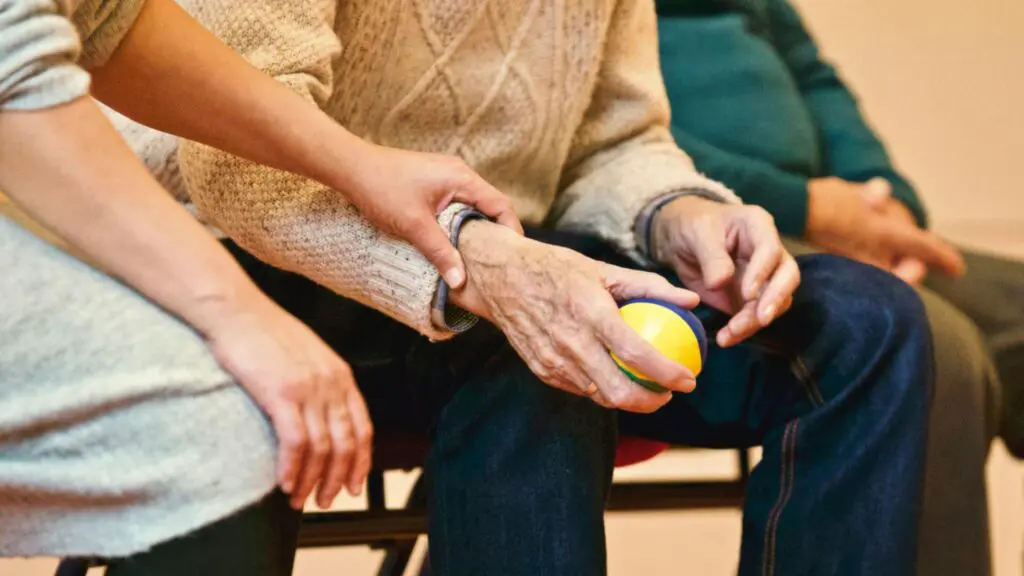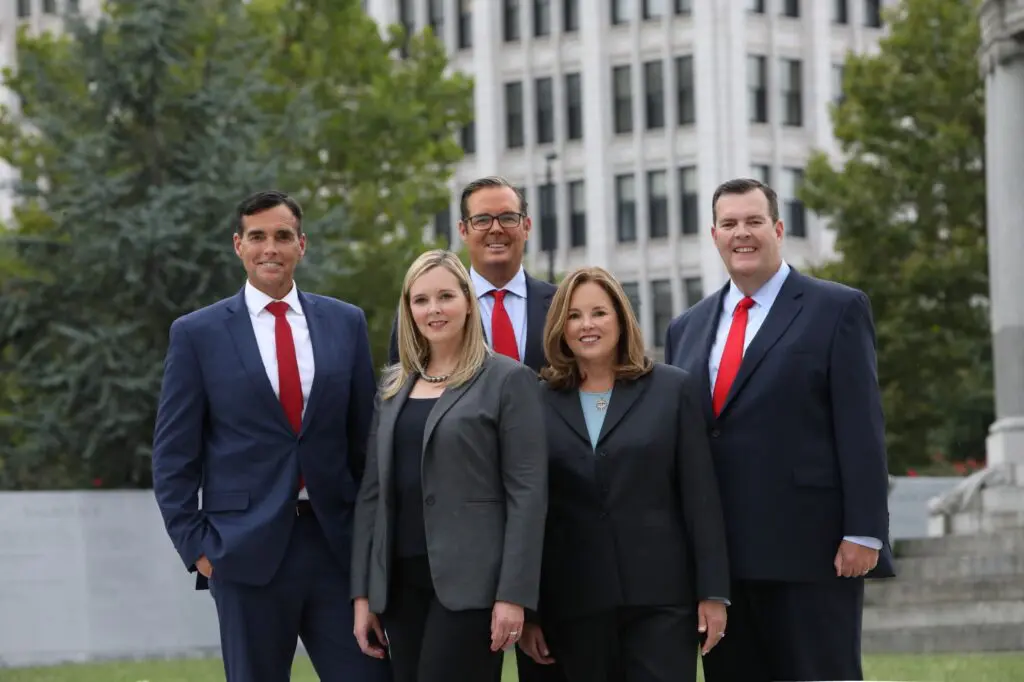A State College nursing home abuse lawyer helps families protect elderly loved ones who have suffered mistreatment in long-term care facilities. When residents experience abuse or neglect in nursing homes, the consequences can be devastating, resulting in serious physical injuries, emotional trauma, and sometimes even premature death. Vulnerable senior citizens deserve protection and justice when care providers breach their duty. Pennsylvania law provides specific protections for nursing home residents, but handling these cases requires specialized knowledge and experience.
At Munley Law, we understand the pain and betrayal families feel when discovering a trusted care facility has harmed their relative. Our attorneys work diligently to hold negligent facilities accountable while securing the financial compensation and protection your family member deserves. If you suspect your loved one has suffered abuse or neglect in a State College nursing facility, contact Munley Law today for a free case evaluation. You’ll meet with an experienced attorney who can answer all of your questions about your legal options.
$32 Million Wrongful Death
$26 Million Truck Accident
$20 Million Commercial Vehicle Accident
$17.5 Million Car Accident
$12 Million Work Injury
$11 Million Truck Accident
$9 Million Truck Accident
$8 Million Truck Accident
$8 Million Truck Accident
$7.5 Million Auto Accident
$6.9 Million Garbage Truck Accident
$6.5 Million Traumatic Brain Injury
Nursing Home Abuse and Neglect in State College
Nursing home neglect and abuse in Pennsylvania takes many forms, ranging from physical mistreatment to subtle psychological harm. Studies suggest that approximately 1 in 10 nursing home residents experience some form of abuse or neglect, with many more cases going unreported. Families should remain alert for warning signs that may indicate abuse, including:
- unexplained bruises, cuts, or fractures
- sudden weight loss or dehydration
- untreated medical issues, poor hygiene, withdrawal, or behavioral changes
- fearfulness around specific staff members
- missing personal belongings and unexplained financial transactions
If you notice any signs of abuse or neglect, make a report. Then Contact Munley Law’s experienced nursing home abuse attorneys for a free legal consultation.
What to Do If You Suspect Nursing Home Abuse
When you suspect your loved one is experiencing mistreatment, your first priority is ensuring their immediate safety. Depending on the situation, this may mean seeking medical attention, increasing your visitation frequency, or in severe cases, considering temporary or permanent relocation to another facility.
Documenting evidence strengthens your ability to protect your family member and pursue justice. Take dated photographs of any visible injuries or concerning conditions. Keep documentation of incidents, including dates, times, and names of staff present. Save copies of all medical records, care plans, and facility communications. Record your loved one’s statements about their treatment when possible.
Pennsylvania law requires reporting suspected elder abuse to the appropriate authorities. In Centre County, you can file reports with the Pennsylvania Department of Aging’s protective services through their 24-hour hotline. Facility administrators are legally required to investigate all reports, though outside oversight is essential.
In cases involving serious harm, criminal assault, or theft, contacting local law enforcement is necessary. The State College Police Department can investigate potential crimes against nursing home residents and coordinate with prosecutors when evidence warrants criminal charges.
Contact our Pennsylvania nursing home abuse attorneys for immediate guidance on protecting your loved one and preserving evidence for your case.
Holding Negligent Nursing Homes Accountable in Centre County
Liability in nursing home abuse cases often extends beyond individual caregivers. The nursing home facility may be responsible for negligent hiring practices, inadequate staffing, insufficient training, or failure to implement proper safety protocols. Corporate owners and management companies can be held accountable for prioritizing profits over resident safety. Medical providers working within the facility may bear responsibility for substandard care. In some cases, equipment manufacturers may share liability for defective medical devices that cause harm.
Victims may recover compensation for medical expenses resulting from abuse or neglect, costs of relocating to a safer facility, physical pain and emotional suffering, and loss of dignity and quality of life. In cases involving extreme negligence or intentional misconduct, punitive damages can punish wrongdoers and deter similar behavior.
Building a strong case requires comprehensive medical records, facility documentation, staffing records, and care plans. Expert testimony from healthcare professionals helps establish how the facility failed to meet acceptable standards of care. Witness statements from other residents, family members, or conscientious staff members can provide crucial corroboration.
Munley Law conducts thorough investigations of nursing home abuse claims, reviewing facility inspection histories, interviewing witnesses, consulting with medical experts, and analyzing staffing patterns and corporate policies that may have contributed to the harmful conditions.
Schedule a no-obligation case review with our dedicated State College nursing home abuse lawyers to answer your nursing home abuse questions and explore your legal options.
Types of Nursing Home Abuse Cases We Handle in State College
- Physical abuse cases involve direct harm to residents through actions like hitting, shoving, improper restraint use, or rough handling. We investigate unexplained injuries such as bruises, lacerations, fractures, and burns, particularly when they appear in patterns or when facility explanations seem implausible.
- Emotional and psychological abuse can be harder to detect but equally damaging. Some examples include verbal assaults, threats, humiliation, isolation from family or other residents, and intimidation. Signs may consist of withdrawal, anxiety, depression, or unusual behavioral changes in the resident.
- Financial exploitation occurs when staff or others misuse a resident’s resources, including theft of personal items, unauthorized credit card use, manipulation of banking information, coercion regarding wills or power of attorney, or charging for services never provided.
- Sexual abuse represents a particularly devastating violation, involving any non-consensual sexual contact with residents, such as assault, inappropriate touching during care procedures, or taking advantage of residents with cognitive impairments who cannot provide consent.
- Neglect cases occur when staff members fail to provide necessary care, resulting in malnutrition, dehydration, untreated medical conditions, pressure sores, falls due to inadequate supervision, or poor hygiene. Caregiver neglect often stems from understaffing and inadequate training.
- Medication errors and improper chemical restraint involve administering incorrect medications, improper dosages, or using sedatives and psychotropic drugs to control resident behavior rather than for legitimate medical purposes.
Contact our experienced lawyers today for dedicated representation in any elder abuse case.
Statute of Limitations for Nursing Home Abuse Claims in Pennsylvania
Pennsylvania law generally allows two years from the date of injury to file personal injury claims arising from nursing home abuse or neglect. For cases involving wrongful death, families typically have two years from the date of death to take legal action. Claims based on breach of contract with the nursing facility may allow up to four years to file.
Certain exceptions may extend these standard deadlines. The “discovery rule” can toll the statute of limitations until the date when the abuse or its connection to the resident’s injuries should reasonably have been discovered. Cases involving fraudulent concealment by the facility may receive additional time, as courts recognize that deliberate hiding of evidence should not benefit wrongdoers.
When elder abuse or neglect continues over time or is discovered well after it occurred, determining the appropriate filing deadline becomes difficult. Courts consider when a reasonable person would have recognized the situation and its connection to the resident’s condition.
The passage of time often complicates nursing home abuse cases, as evidence may be lost, witnesses’ memories fade, and records become more difficult to obtain. Prompt action preserves critical information and provides the best opportunity for thorough investigation. Don’t risk losing your right to compensation. Reach out to Munley Law immediately to ensure your claim is filed within Pennsylvania’s legal deadlines.
Why Choose Munley Law for Your Nursing Home Abuse Case

Our attorneys bring extensive experience fighting for elderly victims of institutional mistreatment. We understand the complicated governing of long-term care facilities and how to identify violations that lead to resident harm. We build compelling cases that stand up to aggressive defense tactics.
Nursing home abuse cases require significant investigative work and expert consultation. Our firm invests the necessary resources to thoroughly analyze medical records, facility documentation, and regulatory compliance. We work with respected healthcare professionals who can testify about deviations from accepted care standards.
Elder abuse cases can take an emotional toll on families. Our attorneys provide compassionate, accessible representation that keeps you informed while minimizing additional stress during an already difficult time. We focus on you and loved ones’ needs and priorities throughout the legal process.
Munley Law has secured substantial verdicts and settlements for nursing home abuse victims throughout Pennsylvania. These outcomes compensate our clients and often lead to improved care practices that protect future residents from similar harm.
Munley Law represents nursing home abuse clients on a contingency fee basis, meaning you pay no legal fees unless we secure compensation for your family. Regardless of your financial circumstances, we provide quality legal representation. Put Munley Law’s Pennsylvania nursing home lawyers to work for your family with a free, confidential consultation today.









